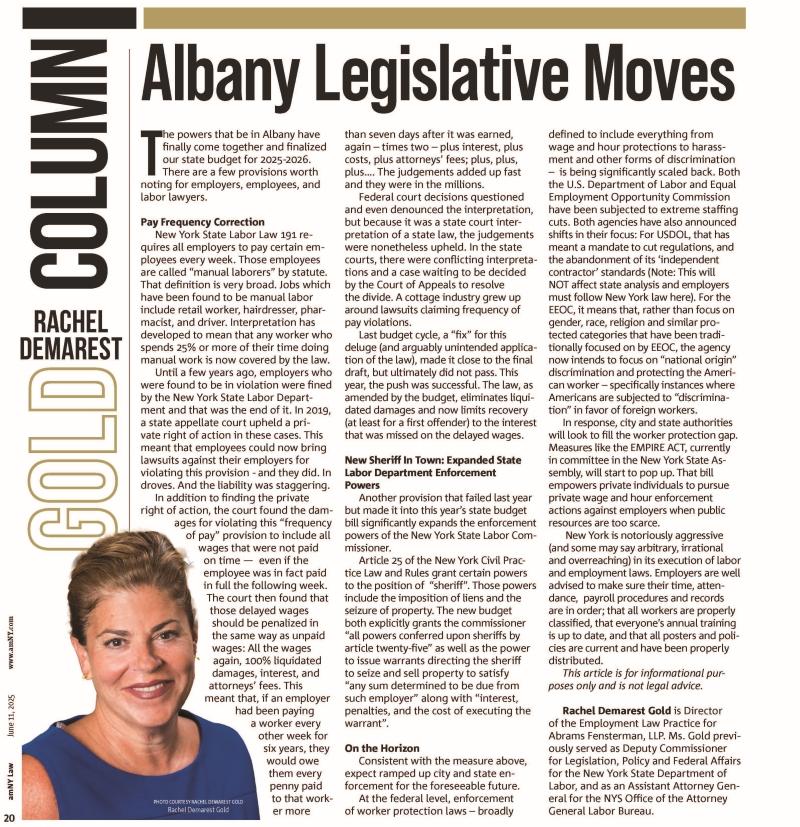Overview
In a healthcare environment where effective control of costs can mean the difference between success and failure, HMOs and health insurance companies have become proactive in their attempts to control fees to physicians. Some HMOs have embarked upon an aggressive campaign of auditing past, paid billings submitted by physicians believed to have engaged in “upcoding” of Evaluation and Management services for in-office sick patient visits, new patient visits, established patient visits and office consultations (CPT codes 99201-99205, 99211-99215 and 9924199245).
The HMO will perform a “statistical extrapolation” of the percentage of “upcodes” in an audited sample of the physician’s charts, as compared to the total universe of the physician’s claims during the relevant time period, and will assign an “estimated” amount of total “overpayments” (i.e. the difference between the payments made by the HMO at the “upcoded” rate and the payments which would have been made at the “downcoded” rate) over the relevant period. The HMO will then send a demand letter to the physician seeking repayment of this amount, or a negotiated percentage of this amount, the refusal of which will result in the HMO commencing arbitration against the physician to recover the “overpayment.” Often, this number can run into six figures.
The Arbitration Provision Contained in the Provider Agreement
Most HMO provider agreements contain a provision stating that any dispute “arising under” the provider agreement shall be resolved by arbitration. If the physician has signed an HMO provider agreement, he or she is bound by the arbitration clause. These provisions are mandatory, and are liberally construed in favor of the arbitration process, so that virtually any dispute between the HMO and the provider will fall within the broad mandate for arbitration, including any dispute arising out of the provider’s billings to the HMO, whether past or present. Often, the arbitration clause requires that such arbitration be held before the American Arbitration Association (AAA). While arbitration in general can be an efficient way to resolve legal disputes, it can also be onerous and extremely detrimental to the provider.
The Arbitration Process – An Overview
Typically, an arbitration proceeding begins with the claimant (in overpayment claims, the HMO) filing a “Demand for Arbitration” (“Demand”) with the AAA, wherein it sets forth the nature of its claim, the relief it is seeking, and the contractual basis upon which it is pursuing arbitration as opposed to litigation (i.e. referencing the specific arbitration provision contained in the signed provider agreement). Thereafter, the AAA will send a copy of the Demand to the provider, who is now called the “respondent,” asking the provider to file an “Answer” to the claim within a specific period of time.
Physicians may have been unpaid or underpaid by the HMO over the relevant time period, and they may assert a “counterclaim” against the HMO for unpaid, or underpaid claims. While it may be a difficult and time-consuming process for the physician and his billing staff to identify such underpayments, identifying and asserting unpaid or underpaid claims against the HMO can have a powerful effect in negotiating a favorable resolution to an HMO arbitration. It is important that the claimed underpayments represent legitimate claims by the physician, as opposed to claims which were properly denied for reasons such as lack of authorization for the procedure, absence of documentation, or other reasons that fall within the HMO’s discretion.
After the Answer has been filed, the AAA will select, from its stable of commercial arbitrators, approximately 10 proposed arbitrators. These arbitrators may be, but are not required to be, attorneys. Some are retired judges, some are academics, and some are from the business community. To this author’s knowledge, there are no healthcare professionals among the ranks of AAA’s commercial arbitrators.
A brief biography of each arbitrator will be sent to both the claimant and the respondent, with a request that each side select three arbitrators from the list, numbering them in order of preference, and return their selections to the AAA (without disclosing their selections to the other party). The AAA will then compare the two lists of selected arbitrators and will pick one arbitrator who has been selected by both sides to preside over the case. If there are no matches among the three selected arbitrators from each side, the AAA will select an arbitrator on its own.
The AAA commercial arbitration rules do not make any specific provisions for “discovery,” and leave all discovery issues up to the selected arbitrator. Typically, the arbitrator will allow each side to serve discovery demands upon the other side, and if there are any specific objections as to any items sought in discovery, the arbitrator will make appropriate rulings. Except in extraordinary situations, depositions of the parties are not permitted. Upon the close of discovery, the arbitrator—with the input of both parties—will select hearing dates for the arbitration proceeding.
The arbitration proceeding is held at the offices of the AAA, with each side presenting its case through the testimony of witnesses and the submission of records and documents. Each side may be represented by a person who may be, but need not be, an attorney. After the close of the hearing, the arbitrator will issue a written decision on the claim, and, where applicable, any counterclaim.
The prevailing party in the arbitration may make application to the court to “confirm” the arbitration award, which will then give the arbitrator’s award the power of a court judgment, for the purposes of execution of the award as against the losing party.
The Arbitrator’s Decision
The arbitrator may render a decision which simply awards a specific sum of money to the claimant or counter-claimant, or denies the claim or counterclaim, without further discussion. The arbitrator may, but is not required to, give a detailed written explanation as to the basis for his or her award. If the provider agreement so provides, the arbitrator may, in addition to determining the claims, award legal fees and costs to either party. Typically, the arbitrator will request that the parties submit a summary of their legal fees and costs incurred in the matter, and will thereafter issue a supplemental decision awarding either side legal fees and costs, in addition to any award previously made to the claimant or to the respondent.
Review of the Arbitrator’s Decision
Pursuant to Article 75 of New York’s Civil Practice Law and Rules, a court’s ability to review an arbitrator’s decision is extremely limited, indeed, virtually non-existent. The courts have generally held that the parties to a contract having agreed to arbitrate a dispute, may not seek redress from the courts simply because they are unhappy with the result of the arbitration. Thus, the courts will not review an arbitrator’s determination based upon claims of a lack of sufficient evidence to support the arbitrator’s decision, improper application of legal principles, the excessiveness or deficiency of the award, or virtually any other argument attacking the award itself. The only grounds which the statute allows for vacating an arbitration award are the following:
- Corruption, fraud or misconduct in procuring the award;
- Partiality of an arbitrator appointed as a neutral, except where the award was by confession;
- An arbitrator, or agency or person making the award exceeded his power or so imperfectly executed the award that a final and definite award upon the subject matter submitted was not made; or
- Failure to follow the procedure of Article 75, unless the party applying to vacate the award continued with the arbitration with notice of the defect and without objection.
While some of these grounds may be easy to allege, the courts require a high degree of proof and a strong showing of actual prejudice before invoking such grounds to annul an arbitration award.
Conclusion
The process of arbitration is not to be approached lightly. The arbitrator has virtually unfettered discretion to make any award which he or she sees fit, and there is virtually no opportunity to challenge the award. The arbitration process, although more efficient and quicker than litigation in court, can also be costly and time consuming. It is not uncommon for the legal fees for each side to run into six figures. The losing party may not only be ordered to pay a substantial sum of money to the prevailing party, but may be ordered to pay a substantial amount of the legal fees and expenses incurred by the prevailing party, in addition to the losing party’s own legal fees.
Physicians who are presented with an HMO provider agreement containing an arbitration clause should carefully consider the implications of the arbitration process. Once a provider has signed a provider agreement containing an arbitration clause, he or she will be unlikely to avoid the arbitration process should an HMO audit result in a demand for reimbursement.





